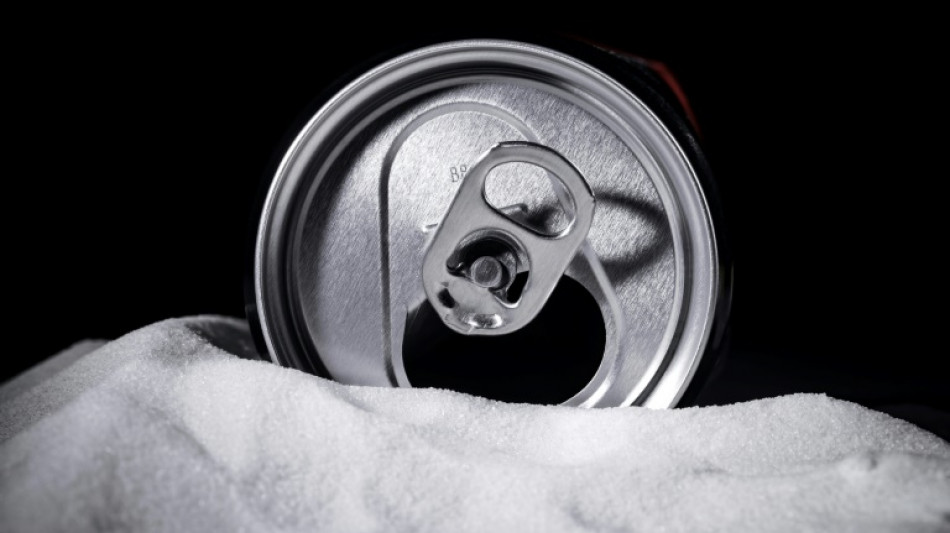
-
 Chelsea stunned by Fulham in blow to Premier League title hopes
Chelsea stunned by Fulham in blow to Premier League title hopes
-
Finns probe ship from Russia for 'sabotage' of cables

-
 Troubled Man City held by lowly Everton, Chelsea title bid rocked
Troubled Man City held by lowly Everton, Chelsea title bid rocked
-
Paterson, Bosch give South Africa edge over Pakistan in first Test

-
 Oil leak in Peru tourist zone triggers 'environmental emergency'
Oil leak in Peru tourist zone triggers 'environmental emergency'
-
Mozambique post-election violence kills 125 in three days: NGO

-
 Finns probing ship from Russia for 'sabotage' of cables
Finns probing ship from Russia for 'sabotage' of cables
-
Williams hits unbeaten 145 as Zimbabwe make Afghanistan toil

-
 Bowlers bring Pakistan back into first Test in South Africa
Bowlers bring Pakistan back into first Test in South Africa
-
Banbridge foils French to land King George VI Chase for Ireland

-
 Man City pay penalty for Haaland miss in Everton draw
Man City pay penalty for Haaland miss in Everton draw
-
Paterson takes five wickets as Pakistan bowled out for 211

-
 India's Kohli fined for Konstas shoulder bump during fourth Test
India's Kohli fined for Konstas shoulder bump during fourth Test
-
Kremlin cautions on 'hypotheses' over plane crash

-
 Pakistan military convicts 60 more civilians of pro-Khan unrest
Pakistan military convicts 60 more civilians of pro-Khan unrest
-
Turkey lowers interest rate to 47.5 percent

-
 Syria authorities launch operation in Assad stronghold
Syria authorities launch operation in Assad stronghold
-
Record number of migrants lost at sea bound for Spain in 2024: NGO

-
 Kohli called out over shoulder bump with Konstas during fourth Test
Kohli called out over shoulder bump with Konstas during fourth Test
-
Rural communities urged to flee east Australia bushfire

-
 Sri Lanka train memorial honours tsunami tragedy
Sri Lanka train memorial honours tsunami tragedy
-
Australia's top order fires to take charge of 4th Test against India

-
 S. Korea's opposition moves to impeach acting president
S. Korea's opposition moves to impeach acting president
-
'We couldn't find their bodies': Indonesian tsunami survivors mourn the dead

-
 Azerbaijan mourns 38 killed in plane crash in Kazakhstan
Azerbaijan mourns 38 killed in plane crash in Kazakhstan
-
Konstas and Khawaja put Australia on top in 4th Test against India

-
 Lakers pip Warriors after another LeBron-Curry classic
Lakers pip Warriors after another LeBron-Curry classic
-
India readies for 400 million pilgrims at mammoth festival

-
 Nepal hosts hot air balloon festival
Nepal hosts hot air balloon festival
-
Asia stocks up as 'Santa Rally' persists

-
 Tears, prayers as Asia mourns tsunami dead 20 years on
Tears, prayers as Asia mourns tsunami dead 20 years on
-
Sydney-Hobart yacht crews set off on gale-threatened race

-
 Key public service makes quiet return in Gaza
Key public service makes quiet return in Gaza
-
Fearless Konstas slams 60 as Australia take upper hand against India

-
 Bridges outduels Wembanyama, Celtics lose again
Bridges outduels Wembanyama, Celtics lose again
-
Hungry Sabalenka ready for more Slam success

-
 Ryde Marks a Transformative Milestone in Singapore's Mobility Landscape
Ryde Marks a Transformative Milestone in Singapore's Mobility Landscape
-
Network-1 Commences Patent Litigation against Citadel Securities and Jump Trading

-
 Kidpik Announces Suspension of Trading of Common Stock on Nasdaq and its Intention to Appeal
Kidpik Announces Suspension of Trading of Common Stock on Nasdaq and its Intention to Appeal
-
SMX Integrates Its Proprietary Coating and Digital Platform Technology for NFC & RFID Chip Markings and Protection

-
 DeepWay Completed 750 Million RMB Series B Financing to Accelerate the R&D of Intelligent New Energy Heavy Trucks
DeepWay Completed 750 Million RMB Series B Financing to Accelerate the R&D of Intelligent New Energy Heavy Trucks
-
Mass jailbreak in Mozambique amid post-election unrest

-
 Azerbaijani jet crashes in Kazakhstan, killing 38
Azerbaijani jet crashes in Kazakhstan, killing 38
-
Bridges outduels Wembanyama as Knicks beat Spurs

-
 2004 Indian Ocean tsunami: what to know 20 years on
2004 Indian Ocean tsunami: what to know 20 years on
-
Asia to mourn tsunami dead with ceremonies 20 years on

-
 Syrians protest after video of attack on Alawite shrine
Syrians protest after video of attack on Alawite shrine
-
Russian state owner says cargo ship blast was 'terrorist attack'

-
 38 dead as Azerbaijani jet crashes in Kazakhstan
38 dead as Azerbaijani jet crashes in Kazakhstan
-
Crisis-hit Valencia hire West Brom's Corberan as new boss


Consuming artificial sweeteners linked to cancer risk: study
Consuming artificial sweetener could increase the risk of developing cancer, a large-scale study suggested Thursday, but experts not involved in the research said it was not enough proof to consider changing current health advice.
Sweeteners are consumed by millions every day in products like diet soda, partly as a way to avoid weight gain from sugar -- but how healthy these substitutes are themselves has long been a matter of controversy.
To assess the cancer risk of sweeteners, researchers analysed the data of more than 100,000 people in France who self-reported their diet, lifestyle and medical history in intervals between 2009-2021 as part of the NutriNet-Sante study.
They then compared consumption to the rate of cancer, while adjusting for other variables such as smoking, poor diet, age and physical activity.
The participants who consumed the largest amount of sweeteners, "beyond the median amount, had an increased cancer risk of 13 percent compared to non-consumers," Mathilde Touvier, research director at France's INSERM institute and the study's supervisor, told AFP.
The study, published in the journal PLOS Medicine, said that a higher cancer risk was particularly seen with sweeteners aspartame and acesulfame potassium -- both used in many soft drinks including Coke Zero.
Out of the 103,000 participants, 79 percent were women and 37 percent consumed artificial sweeteners.
Soft drinks accounted for more than half of the artificial sweeteners consumed, while table-top sweeteners represented 29 percent.
The study found that "higher risks were observed for breast cancer and obesity-related cancers".
Touvier said "we cannot totally exclude biases linked to the lifestyle of consumers", calling for further research to confirm the study's results.
The US National Cancer Institute and Cancer Research UK both say that sweeteners do not cause cancer, and they have been authorised for use by the European Food Safety Authority.
- 'Not proof' -
"The relationship between artificial sweetener consumption and cancer risk is a controversial one, going back to the 1970s when (sweetener) cyclamate was banned for being linked to bladder cancer in rats -- although this was never shown to be the case in humans," said James Brown, a biomedical scientist at Britain's Aston University.
Brown, who was not involved in the study, told AFP that it was "reasonably well-designed" and had an "impressive" sample size.
But he added he did not "believe the current study provides strong enough evidence" for Britain's National Health Service to "change its advice just yet".
Michael Jones of The Institute of Cancer Research, London said that the link reported in the study "does not imply causation" and was "not proof that artificial sweeteners cause cancer".
He said the findings could suggest that "cancer risk may be raised in the type of person who uses artificial sweetener rather than the sweetener itself."
Thursday's findings also do not mean consumers should rush back to sugary drinks -- a 2019 NutriNet-Sante study found that they were also linked to a higher risk of several cancer types.
Brown said that not all sweeteners were equal, with some such as stevia showing health benefits.
Artificial sweeteners are "still likely a useful tool that can help reduce weight gain when replacing sugar -- if the right sweetener is used," he said.
Th.Berger--AMWN